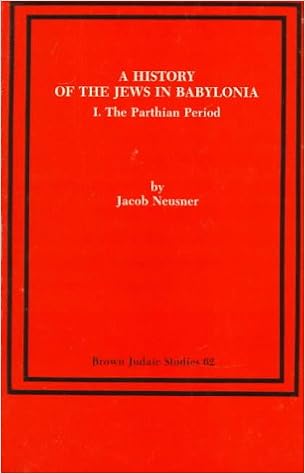This relatively short book is one of the few on the subject. One could wish that it were a bit more accessible, but I find that there is little written about the Parthians and even less that is not from a scholarly perspective. Neusner lays out why this is early on his book--namely, that the Parthians left few records that survived behind. Most of what we know about them comes from what the Romans and Greeks wrote about them--that is, the empire to the West, their enemies. The empire itself also had a mix of various who wrote in their own languages such that creating the whole of a Parthian history might involve knowing not one or two but multiple ancient languages, many of them obscure, which is not common among any scholar.
Neusner puts most of his history together from Jewish Talmudic sources, quoting generously from them. The sources are not terribly compelling, which is part of why the reading proves dull in the end. Neusner seems focused on discovering how much the Babylonian Jews depended on the Palestinian ones for their religious practices--that is, how much the two influenced each other and the degree to which they exercised power over one another.
Of note is the fact that the numerous Jews in the Parthian empire were not inclined to rebel against Parthia in the same manner in which those of Rome rebelled. One reason is that they were given a great degree of self-rule. This, in turn, inclined to make them likely not to get involved in Palestinian uprisings. That said, the animosity Parthia had for Rome meant that it had no problem letting Jewish animosity play to the Parthian advantage in times of war with Rome.
The destruction of Jerusalem led to a fair number of Palestinian Jews fleeing to Babylon and then forging academies that were similar to those that had been common in Palestine. That said, the Palestinian academies did not look kindly on Babylonian scholars doing such things as setting the calendar, even when there was an absence of authority in Palestine with regard to doing so. The expectation was that only people near Jerusalem could do such a thing, and the Babylonians, at least during this time, largely conceded to the Palestinians in this regard once a calendar was set.
Given that this is one of the few books on the subject, I found Neusner's book useful and interesting, despite its overtly scholarly nature.







No comments:
Post a Comment